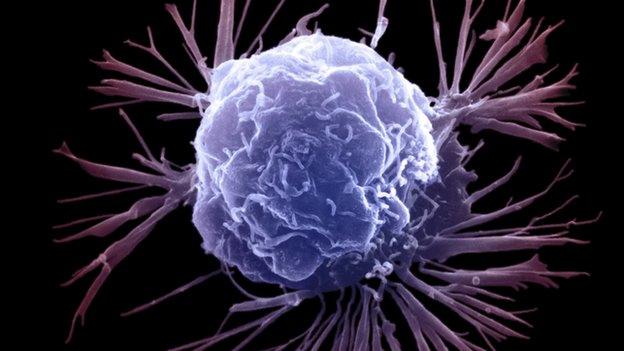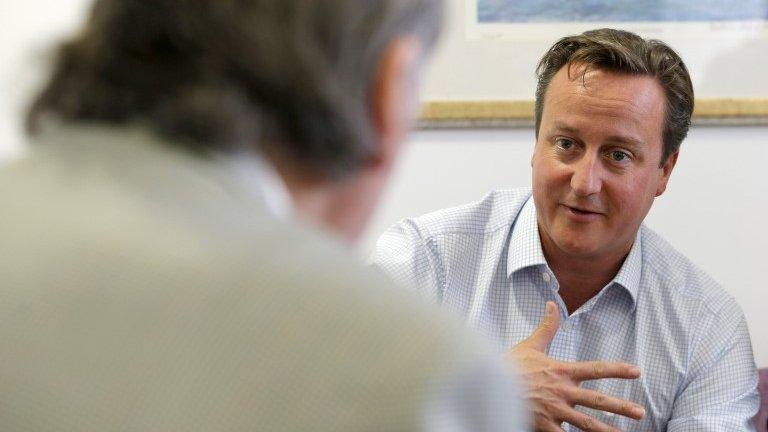Cancer charities concerned at drug fund cuts
- Published

Cancer charities say they are "deeply concerned" at moves to restrict medicines available through a special fund set up by the prime minster.
The Cancer Drugs Fund was a key part of David Cameron's 2010 election campaign.
It gives patients in England access to effective treatments deemed too expensive for hospitals to fund.
More than 40 drugs, around half the total, will be reviewed in mid-December as new rules on cost-effectiveness are introduced by NHS England.
Six drugs in danger of being removed from the list of accepted medicines are for breast cancer.
They include Kadcyla, which extends life by an average of six months and costs £90,000 a course as well as drugs such as Avastin.
Caitlin Palframan, the senior policy manager at Breakthrough Breast Cancer, said: "We're deeply concerned that several very effective breast cancer drugs appear on the list of drugs at risk of delisting due to their high price.
"The fund is the only way women in England can routinely access these drugs that can offer them months, or even years, of additional good quality life."
Prostate Cancer UK said the fund was "on the brink" because of financial pressures, and called for government to find a better strategy for funding cancer drugs.
Owen Sharp, the charity's chief executive, said the fund had created "perverse incentives" that meant drug companies did not need to make their medicines affordable as the fund would pay for them anyway.
He added: "A long-term solution is urgently needed that delivers an overhaul of the way new cancer drugs are appraised."
However, he said it was wrong for patients to be denied drugs while a new system was sorted out.
Special fund
The National Institute for Health and Care Excellence judges which medicines can be afforded by the NHS as a whole.
It means many drugs are deemed not to be cost-effective.
In 2010, Prime Minister David Cameron set up a separate pot of money to give patients access to these expensive drugs, irrespective of cost.
The £200m-a-year Cancer Drugs Fund has been used by about 55,000 people, but is overspent. It ran up a deficit of £30m last year.
Its budget is being expanded to £280m a year, but NHS England says further changes are needed in order to make the fund sustainable.
Prof Peter Clark, the chairman of the Cancer Drugs Fund and an oncologist, said: "The Fund has delivered major benefits to many patients, but if this is to continue we have to act now.
"We have got to make sure that the Cancer Drugs Fund delivers drugs, which offer good clinical benefit at reasonable prices so the Cancer Drugs Fund can treat the largest number of patients."
Restrictions
NHS England has introduced financial restrictions, external on the drugs that will be paid for through the fund.
It said: "The changes to the Cancer Drugs Fund process include re-evaluation of a number of drugs on the list... which will include, for the first time, an assessment of a drug's cost alongside its clinical benefits."
Forty-two of the drugs currently funded, around half the total, will be assessed in December.
However, no patient will be taken off their current medication as part of the shift in policy.
Prof Peter Johnson, the chief clinician at Cancer Research UK, said: "The current system has become inflexible and simply relies on more and more cash to shore up a process which isn't sustainable.
"In the long run we still need a robust way of assessing new treatments to determine what the NHS can fund, so that cancer patients get the best, evidence-based treatments for their condition."
- Published27 August 2014
- Published29 October 2014

- Published28 September 2013
